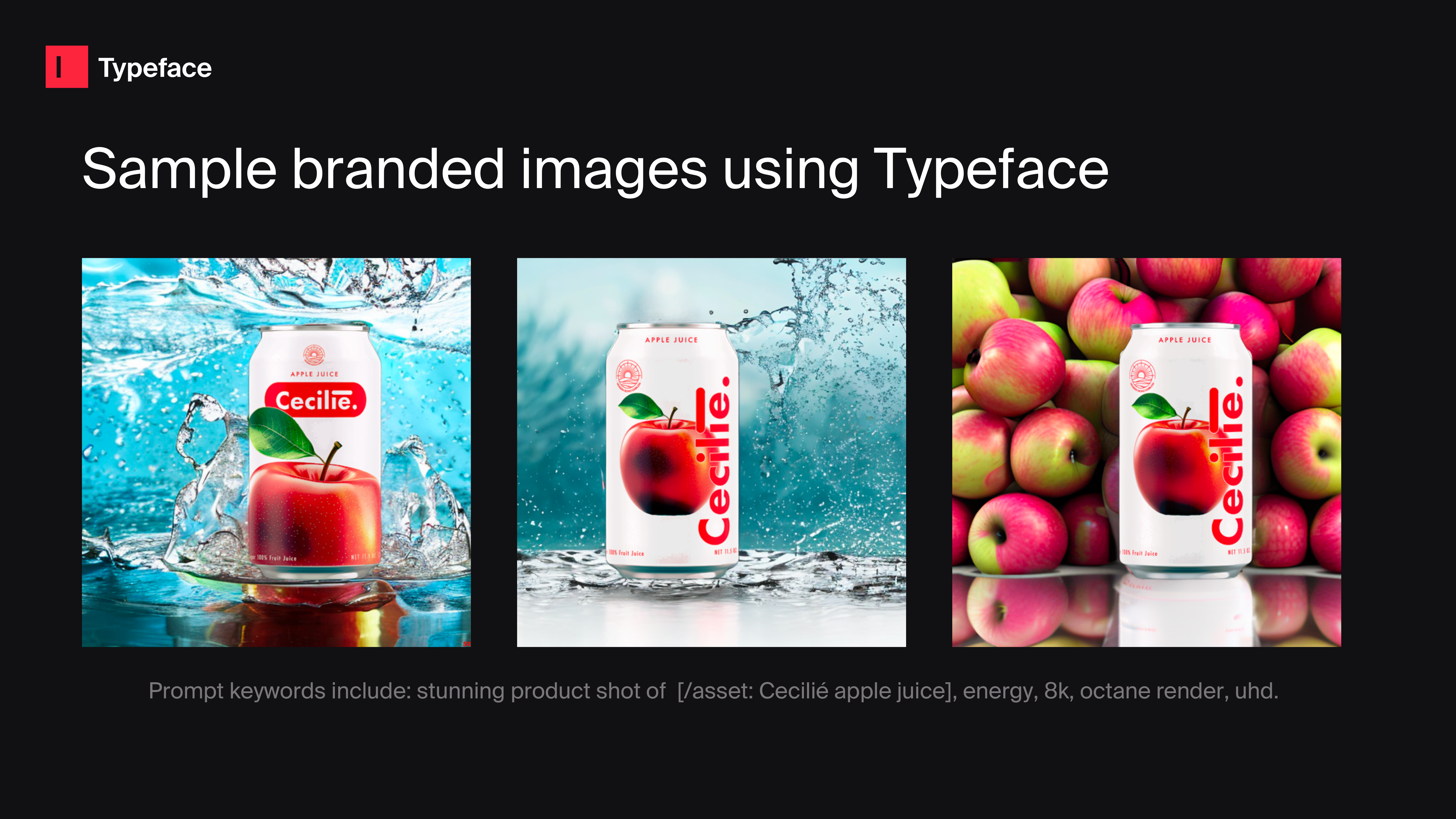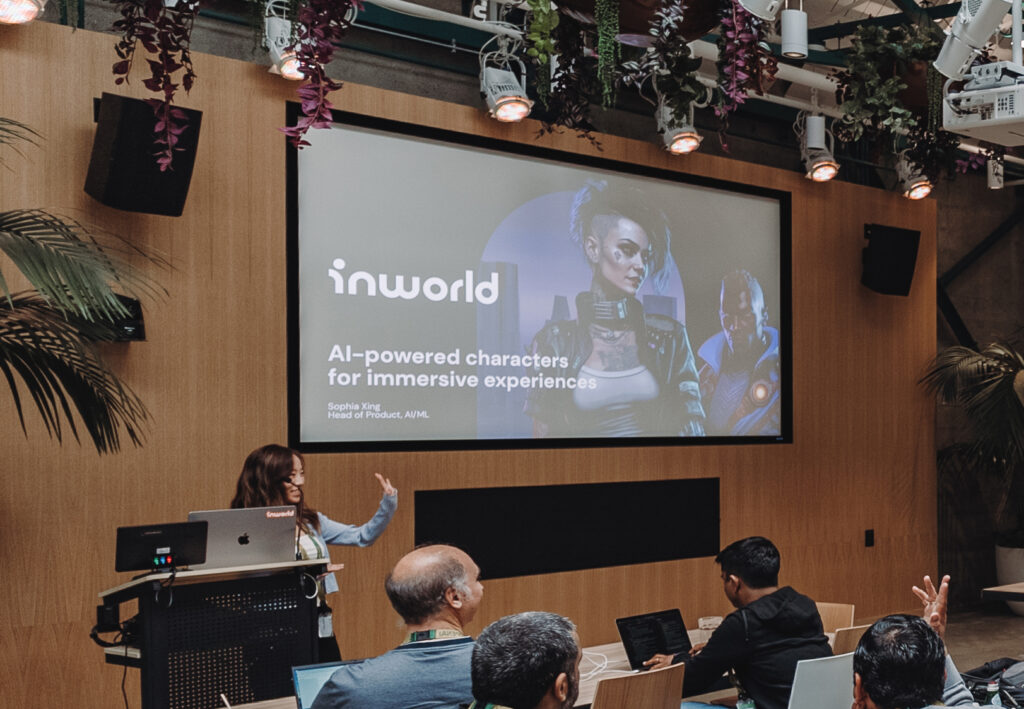In October 2022, M12 was tracking a growing list of a few dozen startups that had generative AI as a key technology. Today, websites like “There’s an AI for that” list more than 5,500 companies in 1,500 categories. Buoyed by a wave of consumer enthusiasm for a resurgent vision of AI, startups can harness a wide range of development tools and services to address the growing market. Faced with so many choices, investors are looking for companies that can address basic questions around unique competitive advantages: clear technological differentiation, scalability, responsible practices, and innate ease and momentum to collaborate. Over the past six months, our team at M12 has screened and talked to more than 600 of the new companies in developer tools and customer-facing applications. Simply getting discovered can be tough. Many of the companies that do stand out for us prioritize these attributes; but sometimes, that’s not enough to provide resilience in the face of so much competition.
So how does a startup stand out in a noisy environment where competitive moats are hard to sustain? End customers are largely still in a learning phase when it comes to what impact generative AI will make in their lives. How is your startup educating and keeping those customers and ignoring the dozens of potential competitors? Talk in AI circles that is dominated by discussions about securing GPU capacity and whether open-source approaches will disrupt closed source could miss the point. Few, if any, of the choices developers make in the technology stack will be visible to end users. It will be more impactful to the business trajectory of the company to make the customers’ experience as relevant, rewarding, and enjoyable as possible.
M12 grounds its AI investment thesis in the idea that the AI systems of the future must harness the conversational, interactive, and familiar nature of generative AI to attract, onboard, and retain customers of all levels of technical sophistication, who are currently swamped in choices and could see a better alternative every day. To become more resilient, startups can ensure their customers stay interested and attached by focusing on four themes: data, dividends, distribution, and delight.
Build trust to leverage your customer’s most relevant, unique, private data
In recent eras of AI commercialization, there were many debates about whether high quality data sources, such as unique or private data, or simply vast datasets, could impart a competitive edge when used to training prediction and classification models. For generative AI, data quality and breadth are still crucial for training capable models, but output can excel based on subjective merits that go beyond a spec-like “ground truth” as in object identification. This creates new angles for a competitive edge to be developed and is the aspect where unique, relevant, and private data has been critical.
Enhancing LLM performance can be achieved through various means, such as implementing fine-tuning techniques, employing embeddings, expanding context windows, and adopting newer strategies like plugins. However, to achieve maximum relevance, ongoing access to fresh data streams is essential. From a different perspective, data holds a comparable value to capital itself, serving as an input for generative AI production. The freshness of data and the ability to act upon relevant information establishes a link to profitability like capital velocity. In contrast to the notion of data being the new oil, the possession of vast amounts of data does not automatically guarantee companies or organizations a leading position in IT. The key lies in using accurate data to guide generation, thereby ensuring its relevance from the outset.
Earlier this spring, M12 invested in Typeface, a generative AI company that empowers manufacturers, retailers, and technology companies to create on-brand marketing messages with the speed and permutational power of generative AI. Led by CEO Abhay Parasnis, an experienced executive in cloud technology, content creation and publishing from Adobe and Microsoft, Typeface presented to us the earliest but most well-formed example of how to combine the potential of these new, somewhat experimental tools with the safeguards and standards of today’s most valuable brands. Typeface ingests brand collateral, official press releases, and audience performance metadata (e.g. audience segmentation, customer journey, age, and buying behavior) from customers’ data platforms. The platform can then create many variants at once of social media posts, product listings, or whole advertising campaigns that remain grounded in ingested and approved data. Customers then see content that is customized as brand owners would have intended, rather than risk generic or incorrect imagery from generalized models using public data.

We’re proud to support Typeface as they define what it means to be an enterprise generative AI startup. Careful adherence to nuances such as the key elements of brand identity is everything in this vast generative AI landscape. Companies with the strongest moats like Typeface will work with proprietary datasets and fine tune generated content according to the policies and wishes of their customers.
Dividends: provide a clear, instant, and positive ROI for your customer
While we’re still learning about new capabilities of foundation models like GPT-4, to address the question of product-market fit, it’s useful to look backwards a year to nimble startups that won early success in the market discovery phase of the generative AI movement, like Jasper and Copy.ai. Although there were many factors that contributed to their rapid revenue growth, connecting the specificity and accuracy of LLMs to customers working in ROI based industries like digital marketing was certainly a strategic breakthrough that was as much an accelerant as the LLMs. It remains a fact that the existence of paying customers says far more about the value of an application than nearly any other technical merit, and as we’re seeing today, startups who are embracing the latest models or developer tooling should expect few to no barriers for their competitors to do the same, getting us back to business models that identify high and immediate payback to their customers for generative AI output.
For founders and investors searching for a groundbreaking app in the current environment, it may be more meaningful to focus on business models that excel at delivering customer satisfaction through proactive, parallel, and predictive actions (the 3 P’s). This represents the essence of personal AI agents, with whom users are likely to develop a quasi-managerial relationship, relying less on providing instructions and more on approving automatically generated choices and plans. Moving beyond a mere chat-based interface, AI interactions are expected to transition to a more natural language-based dialogue that seamlessly integrates into one’s surroundings without causing disruption. Users will have an abundance of options and alternatives presented to them, making it crucial for them to gravitate towards the best solutions that truly resonate and endure.
Evisort, another M12 portfolio company, is an AI-powered contract management software. It’s a great example of an AI agent that specializes in one task, and does that task faster, more efficiently, and with predicable results. At the heart of their business is the ability for the software to text-mine contracts for usable business data. In an example with their customer Keller Williams Realty, we see how Evisort’s AI automation allowed Keller Williams to free up employees’ time, increase operational efficiency, and streamline their contracting processes—all hallmarks for positive ROI.

By focusing on core business strategies such as problem solving, efficiency and automation, and data analysis, an AI startup can deliver concrete ROI for their customers and establish themselves as a trusted partner in their respective industries.
Identify a stable channel for distribution
In 2009, the app store landscape was crowded with 75,000 apps, and doubts arose regarding any new mobile application’s ability to maintain its position amidst increasing competition. Just as advancements in computer vision and discriminative AI evolved over the years, those who embrace today’s cutting-edge AI technology can benefit from improvements in models and tools. However, achieving a competitive advantage requires more than just leveraging the technology stack. Early movers in the market were able to capture paying customers with minimal customer acquisition costs (CAC), but success now hinges on serving the user base more effectively through more than just cost advantages, there’s the challenge of reaching the customers in the first place. Today, having a strong product vision and addressing key factors such as data and distribution are crucial. Startups must have a transparent and comprehensive understanding of the unit economics necessary to establish and sustain profitability, as costs decrease both in terms of infrastructure and customers’ willingness to pay.
Provide endless delight to keep customers engaged and wanting more
As we see the hints of a future of AI agents developing in fast-growing GitHub repositories like AutoGPT and BabyAGI – and now a few startups commercializing them – it’s easy to imagine the numerous ways people will quickly embrace automation in their lives to relieve them of burdensome chores and routines. Beyond the technical demonstrations, which still require significant configuration effort and knowledge of basic programming, there’s a gap between what we see as tools for developers or technically savvy non-developers to use, and an amazing app to boost productivity for all people.
The open opportunity to find and capture a new group of 100 million monthly active users for your AI application and to harness the conversational versatility of LLMs, is to push harder than anyone else to make the experience more human, enjoyable, and delightful.
How enjoyable are today’s websites, with their many layers of analytics consents and unclear path to the information you may want? In many cases, their designs are driven by marketing objectives that end up being misaligned with your needs. These are all opportunities for AI startups to make inroads with customers by getting to the information faster and with fewer detours. The startups we’ll be talking about a few years from now will use natural language interfaces to increase cognitive accessibility, ease, and friendliness to captivate users.
M12 portfolio company Inworld combines all the features of interactivity into a powerful character engine that allows for incredible depth and policy control for operators of applications, games, and other experiences to imbue their user experiences with as close to a human touch as we’ve seen. With a team comprised of veterans from API.AI, Google, and DeepMind, they’re one of the startups to watch in this area.

In conclusion, generative AI has entered an exciting phase, with numerous opportunities for startups. The focus should be on relevance through data, upfront dividends, reliable distribution, and delighting users. While AI alignment and safety remain key guiding principles for our investment thesis, we think it’s more likely that the future of personal AI will be buzzing around you seeking its next orders than something that commands or controls you. You will be a needed element to complete AI and the experience will be closer to an assistant that never sleeps than an omniscient intelligence. It will need you, your attention, and your data to be complete. These are the things that will help your AI startup endure—and make investors take notice.